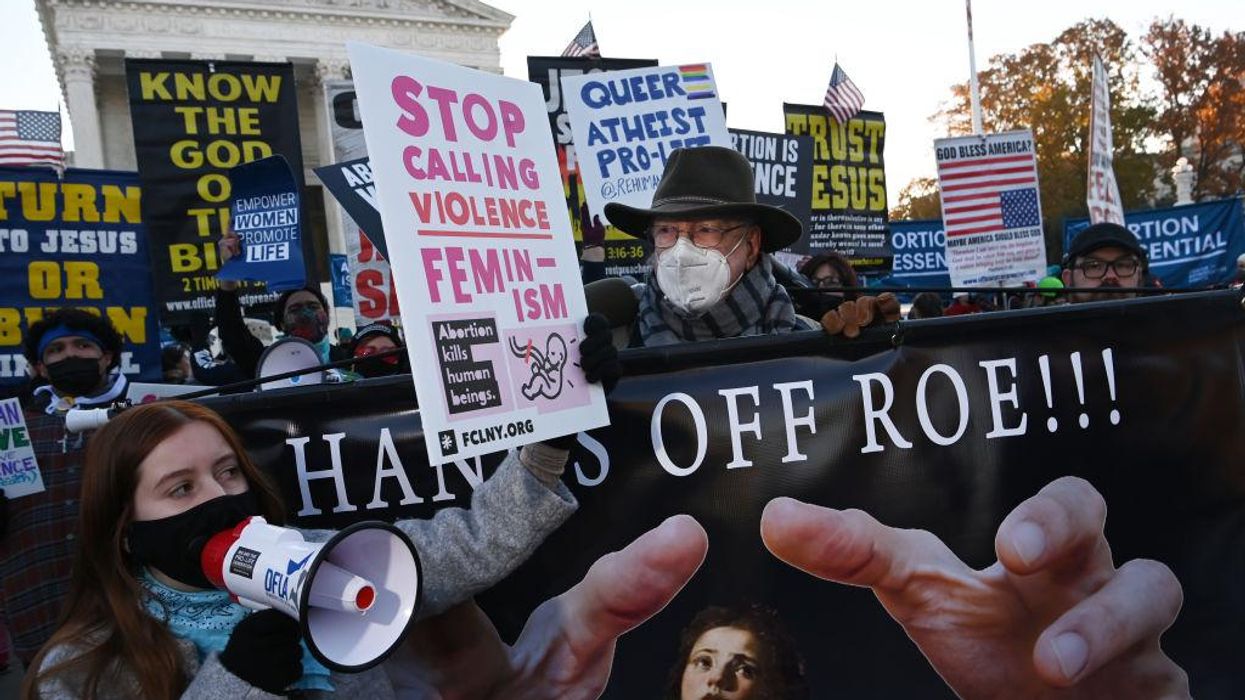
Matt McClain/The Washington Post via Getty Images

Colorado has become the 15th state in the union to enshrine the right to have an abortion into state law with a bill that pro-life activists say may legalize infanticide.
Democratic Gov. Jared Polis signed the so-called Reproductive Health Equity Act into law Monday, a law that affirms women in Colorado have the right to kill their unborn babies during pregnancy and blocks public entities from acting to deny or restrict that right.
"In the State of Colorado, the serious decision to start or end a pregnancy with medical assistance will remain between a person, their doctor, and their faith," Polis said in a statement after signing the bill.
"This bill simply maintains the status quo regardless of what happens at the federal level and preserves all existing constitutional rights and obligations," he added.
The law explicitly denies unborn children rights in the state of Colorado.
"A fertilized egg, embryo, or fetus does not have independent or derivative rights under the laws of this state,” the law states.
Pro-life activists have decried the law as radically extreme, warning that it will lead to "abortion tourism," discrimination against unwanted babies of the "wrong" gender or race, and the deaths of babies that would otherwise be able to live outside the womb.
“Against the will of Coloradans across the state who contacted their elected officials, Polis and the radical abortion extremists in our state legislature have ignored us yet again,” said Colorado for Life in a statement posted to its Facebook page shortly after Polis signed the law.
Others have warned that the wording of the law could make killing children born alive during an abortion legal in Colorado.
“Under the rules proposed by this bill, if a child is delivered alive during an abortion the doctors are under no legal compulsion to provide standard medical care as they would in any other circumstance and attempt to preserve the child’s life,” said Live Action director of government affairs Noah Brandt in a statement.
“Medical providers would listen to the mother’s instructions, which could include not providing life-sustaining medical care to the child, which would lead to the child’s death, which most reasonable people would consider infanticide," he added.
The editorial board of the Gazette, a Colorado Springs newspaper, blasted the law as "barbaric" and accused the Democratic-controlled legislature of "overreaching" in their zeal to defend abortion rights from a purportedly conservative Supreme Court.
"Using abortion as a ruse, the bill proposes lawful infanticide without stating it. It forbids any jurisdiction from infringing an 'individual’s right to act' regarding 'the pregnancy’s outcomes.' A 'pregnancy’s outcomes' often include the birth of a person," they wrote in a Mar. 8 editorial.
The editorial board observed that the law defines "Reproductive Health Care" to include "postnatal and delivery care," which occurs after childbirth.
"Forbidding any regulation of 'postnatal' care means an infant born before or during an abortion or during a botched procedure can be left to die or euthanized after a physician’s consultation," the editorial states.
"Only barbarians would view a newborn as disposable."
Democrats nationwide have pushed to codify the right to abortion into state and federal law in anticipation that the U.S. Supreme Court may overturn its Roe v. Wade decision after deciding whether Mississippi's 15-week abortion ban is constitutional. Pro-choice activists fear, and pro-lifers hope, that the 6-3 majority of Republican appointees on the court will end the federal right to an abortion and send the question back to the states.
Should Roe be overturned, 26 right-leaning states have trigger laws that would severely restrict or outright ban abortions. Countering those states are the 15 left-leaning states, including Colorado, that have now enshrined the right to abortion into state law with the intention of acting as safe havens for women to obtain abortions in the event that Roe is overturned.
Colorado-based abortion clinics told NPR in March that they are planning on an influx of women traveling to the state to seek abortions from neighboring states like Oklahoma, where lawmakers are attempting to make performing an abortion a felony.
"We're planning on it," said Margie Andersohn, practice manager at Healthy Futures for Women, a clinic near Denver that is now hiring more staffers and purchasing equipment that will enable it to perform abortions of babies who are up to 20 weeks developed, just four months shy of being born.
Andersohn reported that demand for abortions at her clinic has increased since Texas passed a six-week abortion ban. That law is being challenged in court, but the Supreme Court refused to block it from taking effect last year.